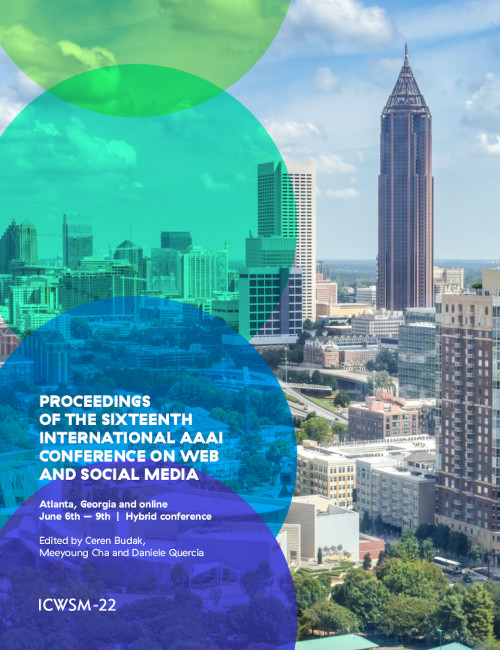Divided We Rule: Influencer Polarization on Twitter during Political Crises in India
DOI:
https://doi.org/10.1609/icwsm.v16i1.19279Keywords:
Subjectivity in textual data; sentiment analysis; polarity/opinion identification and extraction, linguistic analyses of social media behavior, Qualitative and quantitative studies of social media, Centrality/influence of social media publications and authors, Social network analysis; communities identification; expertise and authority discoveryAbstract
Influencers are key to the nature and networks of information propagation on social media. Influencers are particularly important in political discourse through their engagement with issues, and may derive their legitimacy either solely or in large part through online operation, or have an offline sphere of expertise such as entertainers, journalists etc. To quantify influencers' political engagement and polarity, we use Google's Universal Sentence Encoder (USE) to encode the tweets of 6k influencers and 26k Indian politicians during political crises in India. We then obtain aggregate vector representations of the influencers based on their tweet embeddings, which alongside retweet graphs help compute their stance and polarity with respect to these political issues. We find that influencers engage with the topics in a partisan manner, with polarized influencers being rewarded with increased retweeting and following. Moreover, we observe that specific groups of influencers are consistently polarized across all events. We conclude by discussing how our study provides insights into the political schisms of present-day India, but also offers a means to study the role of influencers in exacerbating political polarization in other contexts.Downloads
Published
2022-05-31
How to Cite
Dash, S., Mishra, D., Shekhawat, G., & Pal, J. (2022). Divided We Rule: Influencer Polarization on Twitter during Political Crises in India. Proceedings of the International AAAI Conference on Web and Social Media, 16(1), 135-146. https://doi.org/10.1609/icwsm.v16i1.19279
Issue
Section
Full Papers

